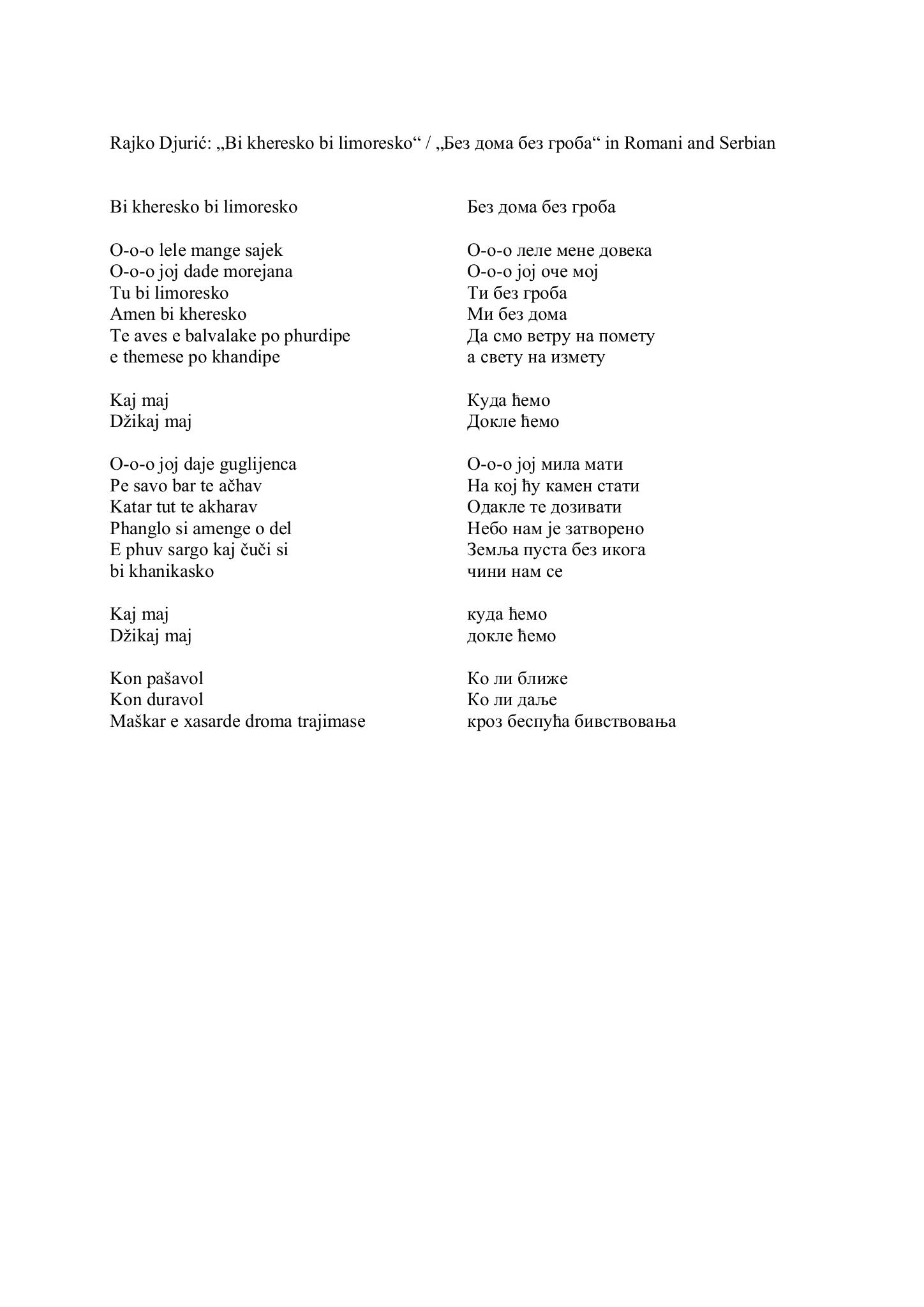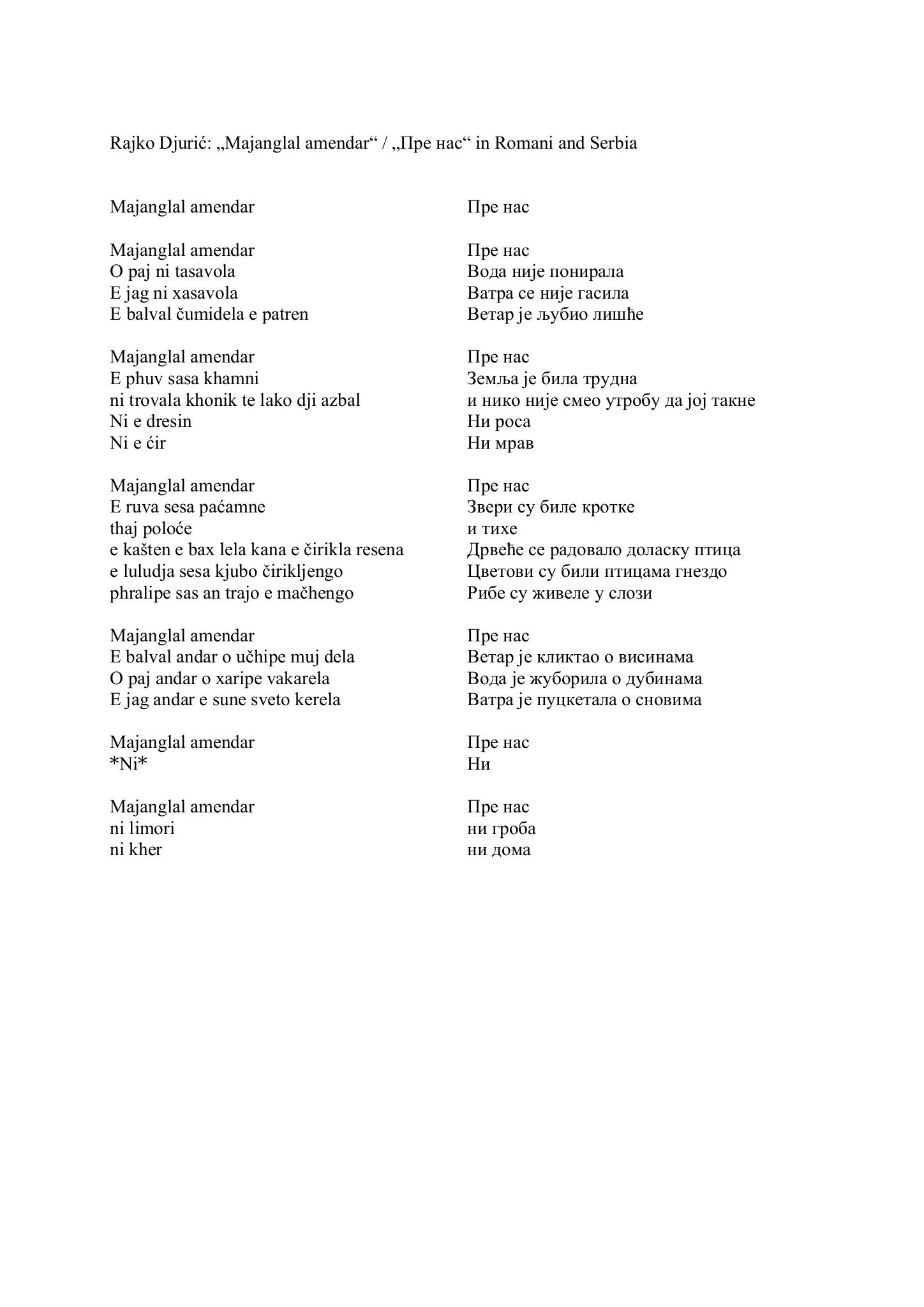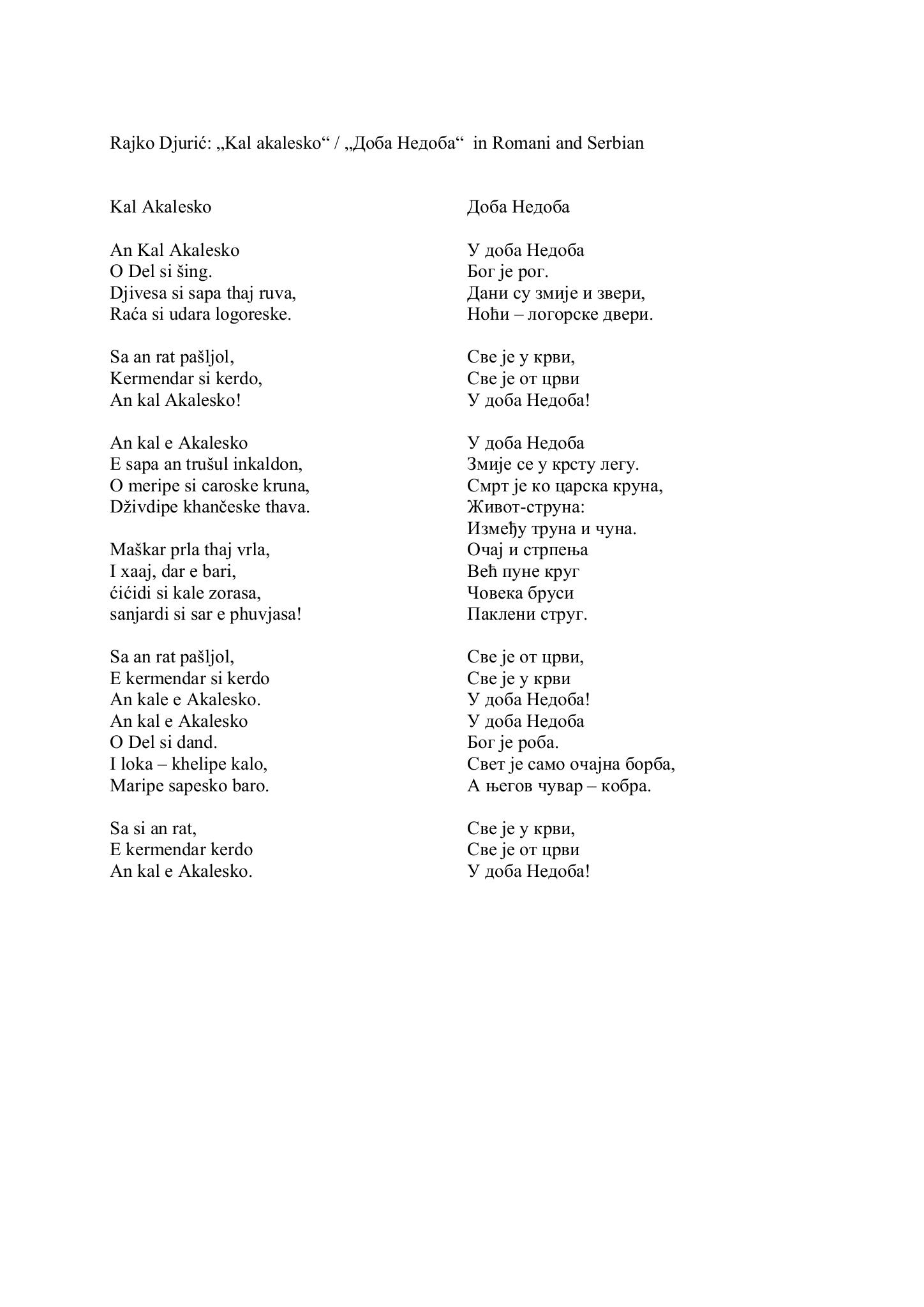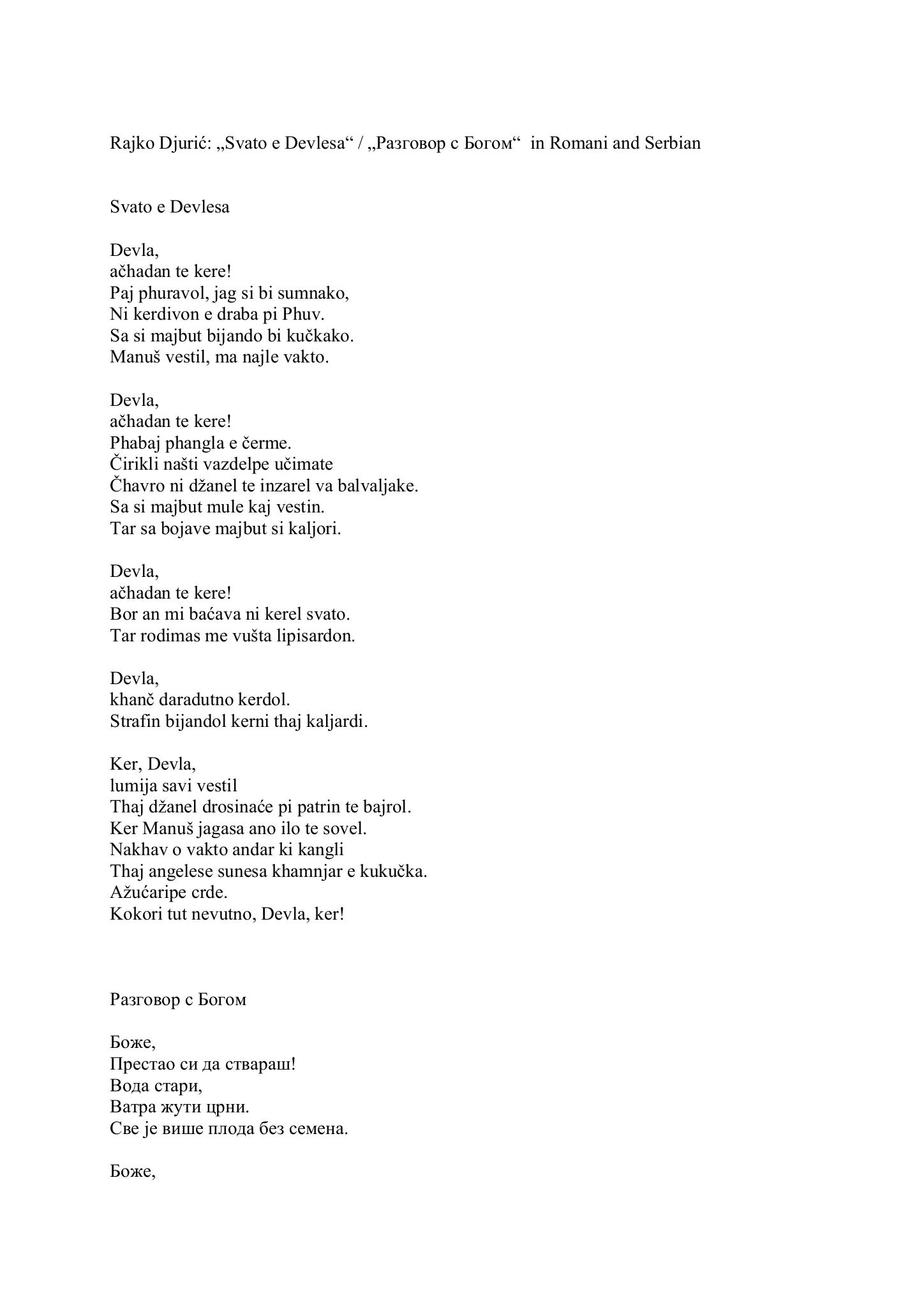The mood of the works is embedded in the title of the 2015 collection in which they were last published: Doba nedoba / Kal akalesko [Time of Bad Times]. The poems form a vivid narrative about cursed human beings as a collective in a desperate struggle to belong and overcome the obscure feeling of hopelessness (see also Djurić’s reading of his poem ‘Kal akalesko’ / ‘Doba neboda’).
Despite the absence of direct references to Roma and Romani identity, Djurić’s poems – which are written in both Romani and Serbian – can be interpreted as metaphorical narratives of the fate of Roma caught between rejection, despair and suffering. Dark feelings prevail in the narrative while God remains the single source of faith and creation.
The poem ‘Bi kheresko bi limoresko’ / ‘Bez doma bez groba’ [Without home, without grave] epitomises this discourse. Besides being one of the best known of Djurić’s works and having lent its title to several international Romani literature collections, it is one of the Roma’s most favourite works, according to the author. The narrative and exclamations are crafted as a traditional lamentation that many Roma recite in times of grief. One of the occasions on which Djurić read ‘Bi kheresko bi limoresko’ in public was at the 1990 International Romani Union Congress in Serock (Poland).







